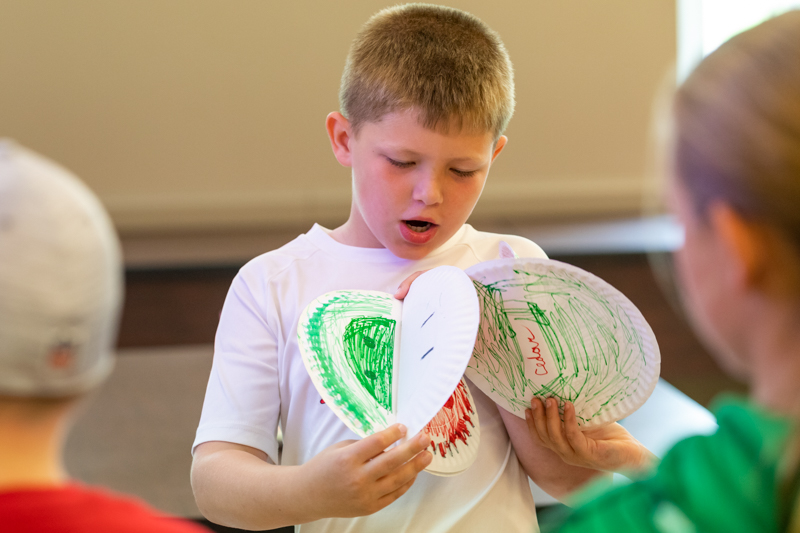By The Duke Talent Identification Program
We want our children to strive for excellence. Whether in schoolwork, ice skating, music, art, scientific experiments, written work, or other activities, striving for excellence is usually a healthy way to develop talent. But when excellence does not seem good enough, perfectionism results, leaving children no room for error and allowing them little satisfaction in what they do.
Perfectionism is different from the motivation for excellence.
Indeed, perfectionism easily leads to underachievement. Perfectionistic children tend to avoid taking risks for fear of falling short of impossible standards. They may procrastinate, feel anxious, or suffer from stomachaches, headaches, and depression as a result of their worry. Sometimes they avoid doing the most basic work or make excuses and blame others for their problems. They may even become defiant and rebellious to hide their fear of failure.
Some children are perfectionistic only about a certain aspect of their lives, for example, their grades and intellectual abilities, their clothes and appearance, or their athletic prowess. Some are perfectionistic in two or three areas, while other areas do not bother them at all.
Causes of Perfectionism
The pressure children feel to be perfect may originate in extreme praise they hear from adults, or it may come from watching their parents model perfectionistic characteristics. It may simply stem from their own continuously successful experiences, which they feel they must always live up to. Gifted children who experience frequent success are especially vulnerable to perfectionism.
How Parents Can Help Perfectionists
- Help your children understand that they can feel satisfied when they have done their best, not necessarily the best. Use praise that conveys values children can achieve. For example, “excellent” is better than “perfect,” and “You’re a good thinker” is better than “You’re brilliant.”
- Explain to children that making mistakes is an important part of growth.
- Encourage children to accept criticism from adults and other students by explaining that they can learn from others.
- Read biographies together that demonstrate how successful people experienced and learned from failures.
- Share your own mistakes and model the lessons you learned from them.
- Help children laugh at their mistakes.
- Show children how bragging affects others. Help them put themselves in the position of others.
- Show children how to congratulate others on their successes.
- Teach children routines and organization, but help them understand that their habits should not be unalterably rigid. Occasional breaks in your own routines will model flexibility and suggest ways for children not to feel compulsive.
- Teach children creative problem-solving strategies and brainstorming for ideas that will keep their self-criticism from interfering with their productivity.
- Explain to children that there is more than one way to do almost anything.
- If your child is an underachiever who fears falling short of perfection, help him or her gradually learn to work harder, and show him or her how that relates to progress.
- If your child is a high achiever but overstudies so as not to receive less than an A+, help him or her gradually study a little less to show that it has only a little effect on grades.
- Be a role model of healthy excellence. Take pride in the quality of your work, but do not hide your mistakes or criticize yourself constantly. Congratulate yourself when you have done a good job, and let your children know that your own accomplishments give you satisfaction.
- If your child’s perfectionism is preventing accomplishment, or if your child shows physical symptoms of anxiety related to perfectionism, seek professional psychological help for your child and your family.
The challenge for parents of gifted children is to help them be successful and strive for excellence without causing them to be burdened with the side effects of too much pressure. This challenge is easier to meet if you do not expect yourself to be a perfect parent.
—Sylvia B. Rimm, PhD
Sylvia B. Rimm is a child psychologist, director of the Family Achievement Clinic, and clinical professor at Case School of Medicine.
This work is adapted from the following books and articles:
- Education of the Gifted and Talented, 5th ed., by Gary A. Davis and Sylvia B. Rimm, Allyn and Bacon, 2003
- See Jane Win for Girls: A Smart Girl’s Guide to Success, by Sylvia B. Rimm, Free Spirit, 2003
- “What’s Wrong with Perfect?” Sylvia Rimm on Raising Kids, vol. 12, no. 4, 2002
- How Jane Won: 55 Successful Women Share How They Grew from Ordinary Girls to Extraordinary Women, by Sylvia B. Rimm and Sara Rimm-Kaufman, Crown, 2001
- See Jane Win: The Rimm Report on How 1,000 Girls Became Successful Women, by Sylvia B. Rimm with Sara Rimm-Kaufman and Ilonna Rimm, Crown, 1999

